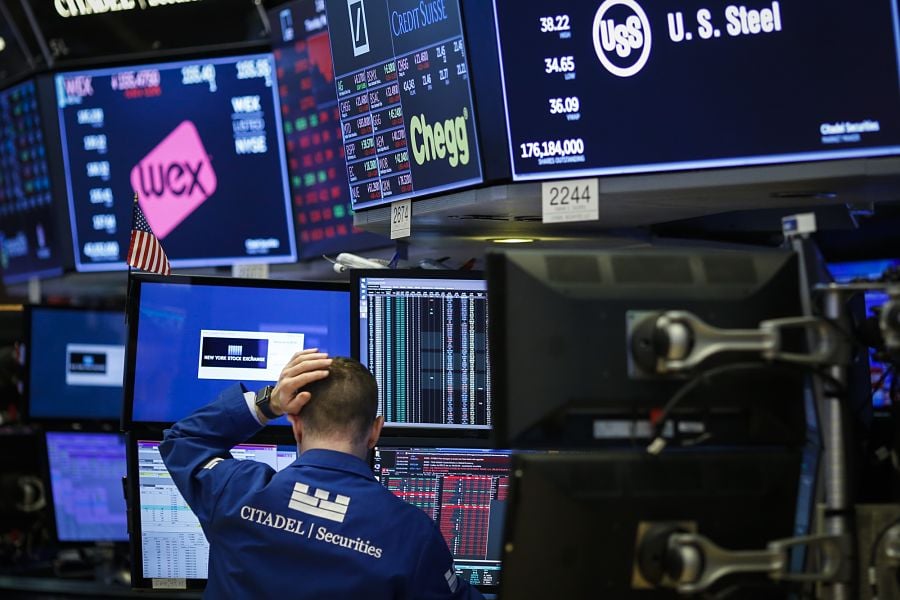

The risk-off sentiment on Wall Street fueled the third-worst weekly outflow on record from U.S. equities, with technology shares falling out of favor.
U.S. stock funds bled $25.8 billion in the week through Sept. 23, according to Bank of America Corp. and EPFR Global data, in a reversal from the previous week’s biggest inflow in more than two years. Investors exited the hottest sector of the rebound, pulling the most money out of tech funds since June 2019.
While traders were buying the dip just a week ago, sentiment has switched firmly to risk off in recent sessions, with pessimism seeping in about the prospect of further fiscal stimulus to support the world’s biggest economy.
The S&P 500 Index is on course for its fourth straight weekly drop, its longest losing streak in more than a year. That’s fueling U.S. equity underperformance versus Asia and Europe in September.
In a flight to haven assets, investors are pulling out of equities as well as cash to put their money into debt and gold. Bond funds received $1.3 billion in the most recent week, while the precious metal attracted $1.4 billion in inflows — the most since the flash crash in early August — according to the Bank of America report. Stocks overall bled $22.8 billion, the most since March.
Still, strategists led by Michael Hartnett view this month’s market moves as a “healthy rather than dangerous correction.”

From outstanding individuals to innovative organizations, find out who made the final shortlist for top honors at the IN awards, now in its second year.

Cresset's Susie Cranston is expecting an economic recession, but says her $65 billion RIA sees "great opportunity" to keep investing in a down market.

“There’s a big pull to alternative investments right now because of volatility of the stock market,” Kevin Gannon, CEO of Robert A. Stanger & Co., said.

Sellers shift focus: It's not about succession anymore.

Platform being adopted by independent-minded advisors who see insurance as a core pillar of their business.
RIAs face rising regulatory pressure in 2025. Forward-looking firms are responding with embedded technology, not more paperwork.
As inheritances are set to reshape client portfolios and next-gen heirs demand digital-first experiences, firms are retooling their wealth tech stacks and succession models in real time.
